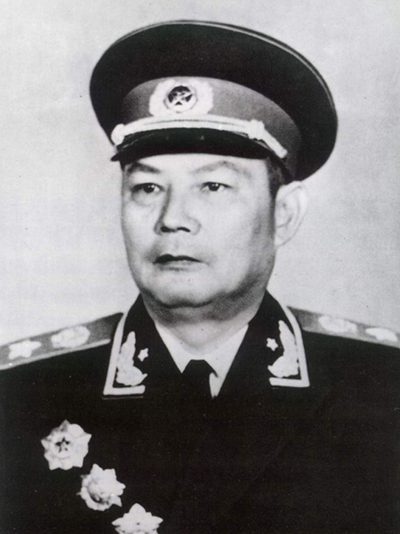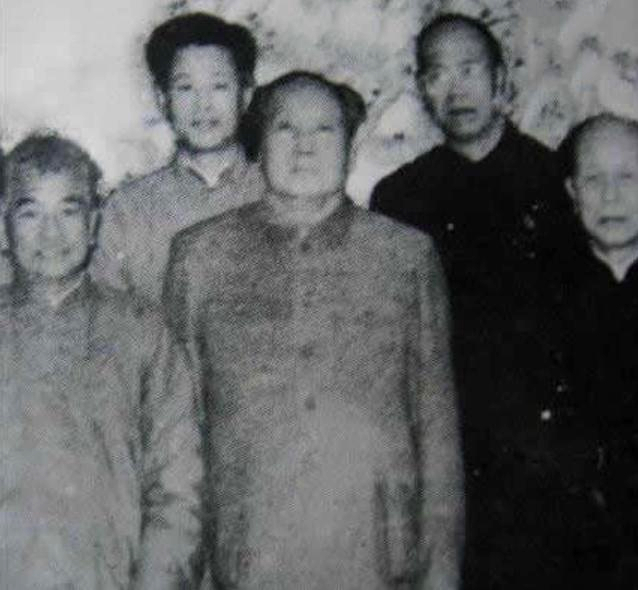|
Party Secretary Of Guangdong
The secretary of the Guangdong Provincial Committee of the Chinese Communist Party is the Party leader, leader of the Guangdong Provincial Committee of the Chinese Communist Party, Guangdong Provincial Committee of the Chinese Communist Party (CCP). As the CCP is the One-party state, sole ruling party of the China, People's Republic of China (PRC), the secretary is the highest ranking post in Guangdong. The secretary is officially appointed by the Central Committee of the Chinese Communist Party, CCP Central Committee based on the recommendation of the Organization Department of the Chinese Communist Party, CCP Organization Department, which is then approved by the Politburo of the Chinese Communist Party, Politburo and its Politburo Standing Committee of the Chinese Communist Party, Standing Committee. The secretary can be also appointed by a plenary meeting of the Guangdong Provincial Committee, but the candidate must be the same as the one approved by the central government. The ... [...More Info...] [...Related Items...] OR: [Wikipedia] [Google] [Baidu] |
Emblem Of The Chinese Communist Party
The emblem of the Chinese Communist Party is the hammer and sickle displayed in golden yellow or red. According to Article 53 of the constitution of the Chinese Communist Party, "the Party emblem and flag are the symbol and sign of the Communist Party of China." History At the beginning of its history, the Chinese Communist Party (CCP) did not have a single official standard for the flag, but instead allowed individual party committees to copy the flag of the Communist Party of the Soviet Union. On 28 April 1942, the Central Politburo decreed the establishment of a sole official flag. "The flag of the Communist Party of China has the length-to-width proportion of 3:2 with a hammer and sickle in the upper-left corner, and with no five-pointed star. The Political Bureau authorizes the General Office to custom-make a number of standard flags and distribute them to all major organs". According to an article published by Tsinghua University, at the 13th National Congress of the Ch ... [...More Info...] [...Related Items...] OR: [Wikipedia] [Google] [Baidu] |
Governor Of Guangdong
The governor of Guangdong, officially the Governor of the Guangdong Provincial People's Government, is the head of Guangdong, Guangdong Province and leader of the Guangdong Provincial People's Government. The governor is elected by the Guangdong Provincial People's Congress, and responsible to it and its Standing Committee. The governor is a Civil service of the People's Republic of China, provincial level official and is responsible for the overall decision-making of the provincial government. The governor is assisted by an executive vice governor as well as several vice governors. The governor generally serves as the deputy secretary of the Guangdong Provincial Committee of the Chinese Communist Party and as a member of the Central Committee of the Chinese Communist Party, CCP Central Committee. The governor the second-highest ranking official in the province after the Party Secretary of Guangdong, secretary of the CCP Guangdong Committee. The current governor is Wang Weizhong, w ... [...More Info...] [...Related Items...] OR: [Wikipedia] [Google] [Baidu] |
Ding Sheng (general)
Ding Sheng (; 1913–1999) was a Chinese general and politician. He served as the Governor of China's Guangdong province from 1972 until 1974. Ding Sheng joined the Chinese Communist Party in 1932. He was already an army officer with the Red Army. He participated in the Long March as well as the Second Sino-Japanese War, Chinese Civil War and Sino-Indian War. He died in 1999 in Guangzhou Guangzhou, Chinese postal romanization, previously romanized as Canton or Kwangchow, is the Capital city, capital and largest city of Guangdong Provinces of China, province in South China, southern China. Located on the Pearl River about nor .... References 1913 births 1999 deaths Hakka generals 20th-century Chinese generals Governors of Guangdong People's Republic of China politicians from Jiangxi Chinese Communist Party politicians from Jiangxi Chinese Red Army generals Commanders of the Guangzhou Military Region Politicians from Ganzhou People's Liberation Army gen ... [...More Info...] [...Related Items...] OR: [Wikipedia] [Google] [Baidu] |
Ding Sheng (born 1970), Chinese director
{{Hndis ...
Ding Sheng may refer to: * Ding Sheng (general) (1913–1999), Chinese general and Governor of Guangdong * Ding Sheng (director) Ding Sheng () is a Chinese film director and screenwriter. Born in Qingdao, Shandong in 1970, his directorial works include ''Little Big Soldier'', ''Police Story 2013'' and ''Railroad Tigers'' (2016), all starring Jackie Chan. Filmography *''A ... [...More Info...] [...Related Items...] OR: [Wikipedia] [Google] [Baidu] |
Liu Xingyuan
Liu Xingyuan (; October 1908 – August 14, 1990) was a lieutenant general in the People's Liberation Army and People's Republic of China politician. Born in Shandong Province. He was Chinese Communist Party Committee Secretary (March 1972 – October 1975) and governor (March 1972 – October 1975) of Sichuan Province. He was Chinese Communist Party Committee Secretary (December 1970 – March 1972) and governor (June 1969 – March 1972) of Guangdong ) means "wide" or "vast", and has been associated with the region since the creation of Guang Prefecture in AD 226. The name "''Guang''" ultimately came from Guangxin ( zh, labels=no, first=t, t= , s=广信), an outpost established in Han dynasty ... Province. References {{DEFAULTSORT:Liu, Xingyuan 1908 births 1990 deaths People's Republic of China politicians from Shandong Chinese Communist Party politicians from Shandong People's Liberation Army generals from Shandong Governors of Sichuan Political office ... [...More Info...] [...Related Items...] OR: [Wikipedia] [Google] [Baidu] |
Huang Yongsheng
Huang Yongsheng (; 1910–1983) was a general of the China's People's Liberation Army. In 1955 Huang was awarded the position of ''Shang Jiang'' (colonel-general), and Huang continued to rise throughout the 1950s and 1960s, eventually becoming Lin Biao's Chief-of-staff during the Cultural Revolution. Because of Huang's close associations with Lin Biao, Huang was purged following Lin's death in 1971. Biography Early years Huang Yongsheng was born in Xianning prefecture (now, prefecture-level city) of Hubei province. Huang Yongsheng participated in the Autumn Harvest Uprising of 1927, and in December of the same year joined the Chinese Communist Party. In 1932, he was appointed the commander of the 31st Division of the 11th Red Army, and later to the 16th Division of the 22nd Red Army. During the war against Japan, he was appointed a regimental commander in the 115th Division of the Eighth Route Army. In 1948, Huang was appointed the commander of the 6th Column of the Fourt ... [...More Info...] [...Related Items...] OR: [Wikipedia] [Google] [Baidu] |
Zhao Ziyang
Zhao Ziyang; pronounced (17 October 1919 – 17 January 2005) was a Chinese politician. He served as the 3rd premier of China from 1980 to 1987, as vice chairman of the Chinese Communist Party (CCP) from 1981 to 1982, and as the CCP general secretary from 1987 to 1989. He was in charge of the political reforms in China from 1986, but lost power for his support of the 1989 Tian'anmen Square protests. Zhao joined the Chinese Communist Party (CCP) in February 1938. During the Second Sino-Japanese War, he served as the chief officer of CCP Hua County Committee, Director of the Organization Department of the CCP Yubei prefecture Party Committee, Secretary of the CCP Hebei-Shandong-Henan Border Region Prefecture Party Committee and Political Commissar of the 4th Military Division of the Hebei-Shandong-Henan Military Region. During the Chinese Civil War of 1945–1949, Zhao served as the Deputy Political Commissar of Tongbai Military Region, Secretary of the CCP Nanyang Prefectur ... [...More Info...] [...Related Items...] OR: [Wikipedia] [Google] [Baidu] |
Tao Zhu
Tao Zhu (; 16 January 1908 – 30 November 1969) was a member of the Politburo Standing Committee of the Chinese Communist Party. Biography Tao was born in Qiyang, Qiyang County, Hunan, on 16 January 1908. He was imprisoned in Nanjing by the Kuomintang government from 1933 to 1937. As for many other cadres, during the Yan'an Rectification Movement, Rectification Campaign having been in a KMT prison was a reason to suspect him as a spy and he was put under investigation. Tao Zhu was Secretary of the Guangdong Provincial Committee and Commander of the Guangzhou Military Region. He became implicated during the Gao Gang#"Gao Gang Affair", Gao Gang affair but was protected from criticism by Mao Zedong. In 1958, during the initial stages of the Great Leap Forward, he participated enthusiastically in the "anti-hoarding campaign" in Guangdong, believing that reported production figures were real, and that the observed food shortage was only due to peasants' hoarding. Within a year, he ... [...More Info...] [...Related Items...] OR: [Wikipedia] [Google] [Baidu] |



